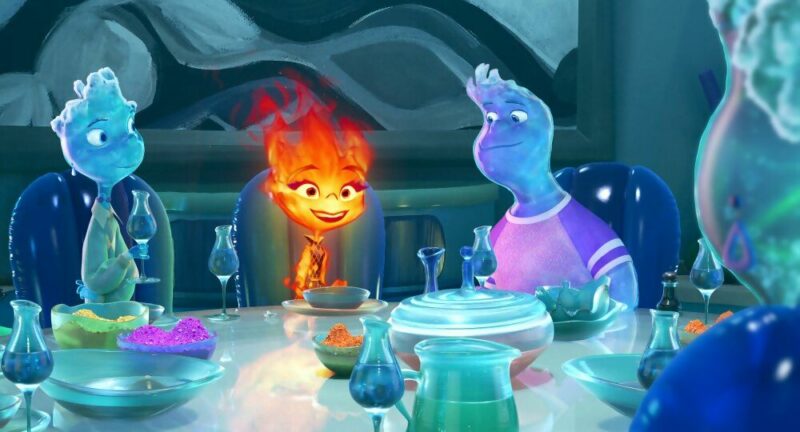
As The Marvels struggles at the box office, we wonder whether there are signs that audiences are willing to wait for certain films to appear on streaming platforms.
By now, Hollywood outlets have long since finished their weekend box office reports, and they’re likely to make for a sobering read for Marvel. Following a far-from-great opening for The Marvels (in which it made $110m worldwide), the superhero sequel’s second weekend grosses dropped by a startling 78 percent, which according to number crunchers like Variety is an even more precipitous fall in profits than those suffered by The Flash and Morbius.
Inevitably, there has been a rush to interpret what these numbers mean. Some have described The Marvels’ low ticket sales as a sign of audiences losing interest in Marvel Studios’ once reliably crowd-pleasing formula. Others have gone further, describing it as the beginning of the end of superhero movies as a whole. In his article How To Kill a Superhero, Ted Gioia suggests that the superhero flick – which has been a powerhouse for 15 years, and longer if you go right back to Sam Raimi’s Spider-Man or Bryan Singer’s X-Men – could be about to go the way of the western or the Hollywood musical.
These and other interpretations may or may not prove to be correct. But there’s also another possibility that doesn’t seem to have been talked about quite as much: that audiences still love superhero movies in general and Marvel movies in particular, but they only want to go to the cinema to watch the best ones.
When it comes to Marvel’s output, Avengers: Endgame is a clear high watermark. It was well reviewed, brought a huge saga to a dramatic close that people by-and-large enjoyed, and it made a startling $2.8bn at the box office. But Avengers: Endgame marked more than the end of a story. It also came just a year before the global pandemic forced cinemas to close for several long months, changing audience viewing habits in the process.
In a curious bit of cosmic alignment, Disney also entered the streaming wars in November 2019 with the launch of Disney+. As Covid-19 began to bite down a few months later, this only helped to ensure that viewers spent more time watching movies at home on their own televisions.
By the time the pandemic had begun to wane and cinemas had opened their doors again, the pop cultural landscape had subtly but irrevocably changed. As well as superhero movies like Black Widow and Eternals, Marvel fans now had a wealth of connected TV shows to imbibe – 2021 alone saw the release of WandaVision, The Falcon And The Winter Soldier, What If…? and Hawkeye.
Marvel’s movies still had their appeal, but for Disney+ subscribers, there was a new, tantalising option available to them: rather than go to the expense of paying for cinema tickets, parking, snacks, baby-sitters, and all the other hidden costs associated with a night out at the movies, they could simply wait a few months for the movie to appear on the streaming service they were already shelling out for.
All of which might explain why the box office takings have varied vastly between Marvel films. When Eternals came out in the autumn of 2021, it made a shade over $400m – not even double its $236m budget. If memory serves, those ho-hum numbers also triggered familiar-sounding ‘are people bored with superhero films’ thinkpieces. But look what happened the following month: Spider-Man: No Way Home – a film made by Sony, but in close legal partnership with Marvel – made nearly $2bn.

In 2023, we’ve seen a similar roller-coaster when it comes to box office numbers. Ant-Man And The Wasp: Quantumania kicked off Disney’s 100th anniversary year with a less-than-auspicious $476m worldwide (reported budget: $200m). That sounds pretty dismal and probably is if you’re a Marvel executive, but this May brought far better news: Guardians Of The Galaxy Vol 3 made $850m.
The difference between the films mentioned so far? Reviews and CinemaScores. Guardians Of The Galaxy Vol 3 scored an ‘A’ rating from audiences, while the film scored highly with both critics and audiences on Rotten Tomatoes. Spider-Man: No Way Home did even better, earning a rare A+ with audiences and scores in the 90s on Rotten Tomatoes.
Conversely, Eternals scored a CinemaScore of B and distinctly gloomy reviews from critics. Likewise Quantumania, which was given a B CinemaScore and received generally lukewarm critical notices. Meanwhile, Rotten Tomatoes has audience scores for both films on the more positive side of the scoring spectrum (currently 77 percent for Eternals, 82 percent for Quantumania).
Put all this (not terribly scientific) data together, and a potential picture begins to emerge: fans will make an effort to go to the cinema to see the Marvel films they deem essential, but will stay at home and wait for the ones that could be described as ‘a bit mid’. That Eternals and Quantumania were liked by audiences according to Rotten Tomatoes, but still didn’t do all that well in cinemas, only adds weight to this theory. Sure, people liked the films – they just couldn’t necessarily be bothered, en masse, to flock to the nearest multiplex to see them.
This isn’t to say that audiences are hanging on critics’ verdicts, or that film reviews have the power to define a movie’s success – far from it. Rather, audiences are wise to the broader conversations – the vibes, if you like – surrounding an upcoming film, be it Marvel or otherwise. There’s also word-of-mouth to consider – if it’s good, then even a film that’s suffered a disappointing opening weekend can go on to be a healthy success. For an example of this, look no further than Disney’s Elemental, which defied initial predictions that it was about to flop.

Unfortunately, the opposite is also true. If died-in-the-wool superhero fans are going to see a film like The Marvels on its opening weekend, and they go and tell their friends that it’s one to skip, then that’s going to harm the takings for weeks to come. And, let’s face it, Disney has ensured there isn’t too long to wait between its movies’ cinema release and their debut on Disney+. Quantumania premiered in cinemas in February 2023; it was on Disney+ by May. If it’s a choice between spending £15 for a cinema ticket to a film your mate says is only so-so, or waiting 12 weeks to see it at home, then it’s logical that a certain chunk of viewers would take the latter route.
Zooming further out, and it’s possible to see evidence of the theory elsewhere. Two of this year’s three highest-grossing films, Barbie and Oppenheimer, have been buoyed by positive reviews, and both were hyped as experiences that had to be seen in cinemas. Even The Super Mario Bros Movie, which was less warmly received by reviewers, was given a CinemaScore of A by audiences.
On the flipside, The Flash was loudly trumpeted by Warner’s David Zaslav and James Gunn as “the best superhero film ever”, but audiences appeared to disagree. They gave it a CinemaScore of B, and the film made $270m at the box office.
All of which could be taken as a sign that audiences are becoming more picky about what they watch – especially if it’s a film they can see at home a few weeks later. They’ll pay to see a film if it’s exciting enough (which helps explain why the somewhat rote Fast X was such a big hit this year) but will happily wait to catch up with a three-star film once it appears on a streaming service. Audiences will also show up for experiences they know are best enjoyed with a crowd – hence the huge success of Taylor Swift’s The Eras Tour concert film.
For Marvel Studios or the recently-formed DC Studios, this might sound slightly worrying, because it could indicate that fans won’t automatically turn up for any superhero movie with their branding applied to it. The film has to be genuinely thrilling – or at least in some way enticing – in order to catch viewers’ imaginations.
For the rest of us, this is potentially A Good Thing – where the pre-pandemic years were dominated by Marvel and Star Wars movies, 2023 has seen a low-key period drama about a scientist, a gently subversive fantasy comedy about a doll, and an effervescent concert film all conquer the box office.
For the first time in years, what might constitute a sure-fire hit has now been thrown into question.








